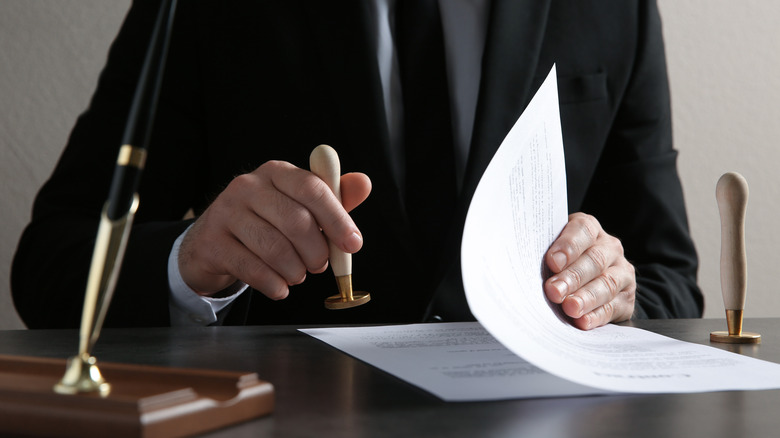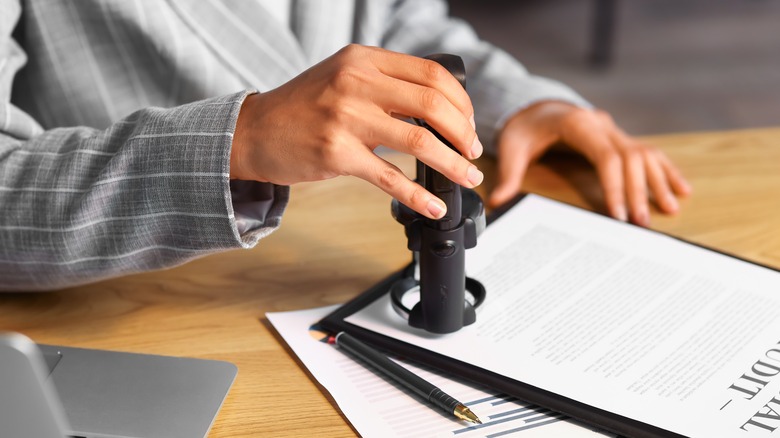How To Get Something Notarized
When signing important documents, such as a mortgage, a will, or power of attorney, you want to make certain that what you're signing is absolutely legitimate. This is where a notary public can step in. A notary public is someone who has gone through the training to become a notary and be recognized officially in their state. A notary has the qualifications necessary to overlook the signing of important documents to ensure there's no fraud taking place.
To become a notary public you need to be at least 18 years of age with no criminal background and complete a training course in order to be certified by the state in which you reside. Having this position comes with a great deal of responsibility and could be a valuable asset to add to your resume or obtain if you work in real estate or other business environments. For those who may need their services, you might be wondering exactly what you should get notarized, how to contact a notary near you, and what's involved in the process.
Why you would want a document notarized and how to start the process
There are many reasons why you might want to get a document notarized. First and foremost the major benefit of having a notary public present while important documents are being signed is to dissuade fraud and any possible notion of forgery or misrepresentation of the signees. Other reasons are that it could help you in any future legal matters if the items are properly notarized and save on possible disputes. Plus, it's mandatory when dealing with wills and power of attorney.
When you have a document ready to be notarized, you must make absolutely sure that it's 100% accurate with no blank spaces left to be filled out, except of course for the signatures of the signees. All additional copies of the document in question should be available and be left unaltered from the original. Then you can schedule an appointment to meet with a notary public. You may have success finding a notary in businesses such as law firms, libraries, real estate offices, accounting offices, and even colleges or universities. Or you can use an online service.
What to expect when meeting with a notary public
The three main types of notarizing come in the form of acknowledgments, where they state that every signee has signed the item under their own free will; jurats, where the signees swear that everything enclosed in the documents is true; and finally, copy certifications, where a notary would confirm that all copies are the same and do not differ from the original. Once your documents are completed and ready to be signed, at your meeting with an officially recognized and state-approved notary, they'll go through a process before placing their seal on the papers to notarize them.
As a representative of the state, the notary will validate that the proper signees are present, check correct identification and that all are in the right state of mind, as well as ensure that they're aware of the document they're signing and the significance of its contents. After all of this, the notary will witness the signing of the documents and place their official seal on the papers to validate the transaction. A fee is needed in order to obtain the services of a notary public and can vary depending on exactly what's being done and what state the notarizing takes place. Most services can be done for less than $20, but it helps to know the exact fees so that there's no confusion on the day of your appointment.


